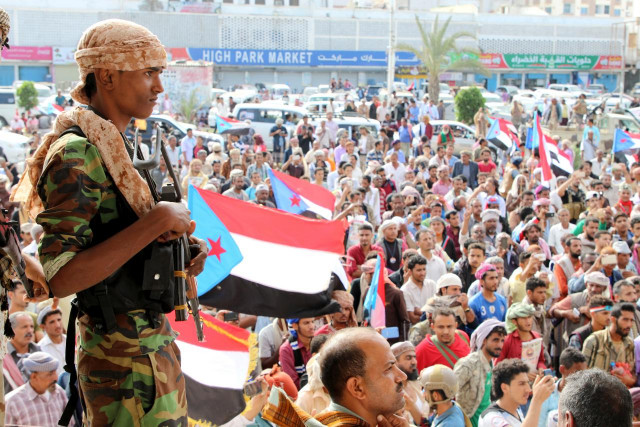Russia resists Western bid to condemn Iran at UN over Yemen arms
United States has been lobbying for months for Iran to be held accountable at UN

The clashes came after separatist forces seized government buildings in what Yemen's prime minister called an attempted coup.
Aden, Yemen. PHOTO: REUTERS
The United States has been lobbying for months for Iran to be held accountable at the United Nations, while at the same time threatening to quit a 2015 deal among world powers to curb Iran's nuclear program if "disastrous flaws" are not fixed.
The 15-member council is negotiating a resolution, drafted by Britain in consultation with the United States and France, that would condemn Iran for violating an arms embargo on Houthi leaders and include a council commitment to take action over it.
Pakistan should mend fences with Russia
"We don't like condemnations at all, in general," Russian UN Ambassador Vassily Nebenzia told Reuters.
"The resolution is about Yemen," he said. "It's a resolution about the extension of the working group (of independent experts), not about Iran. So we should concentrate on extending the working group first."
The key focus of the draft text, which needs to be adopted by Feb. 26, is to renew targeted UN sanctions and the mandate for the independent experts who monitor their implementation. It would also expand sanctions criteria to include "any activity related to the use of ballistic missiles in Yemen."
Russia supplying free fuel to Taliban in war against NATO forces, reveals report
A resolution needs nine votes in favour and no vetoes by Russia, China, the United States, France or Britain to pass.
"It is fair to say the draft is not one the Russians are currently supportive of and they have made their views clear," said a senior UN diplomat, speaking on condition of anonymity. Another UN diplomat, speaking on condition of anonymity, said Russia had described the draft text as "unacceptable."
A proxy war is playing out in Yemen between Iran and US ally Saudi Arabia. A Saudi-led coalition intervened in Yemen in 2015, backing government forces fighting Iran-allied Houthi rebels. Iran has denied supplying the Houthis weapons.
China 'as big a threat to US' as Russia: CIA chief
UN experts monitoring the Yemen sanctions reported to the Security Council in January they had "identified missile remnants, related military equipment and military unmanned aerial vehicles that are of Iranian origin and were brought into Yemen after the imposition of the targeted arms embargo."
While the experts said they have "no evidence as to the identity of the supplier, or any intermediary third party" of the missiles fired by the Houthis into neighbouring Saudi Arabia, they found Iran had violated sanctions by failing to prevent missiles and unmanned aerial vehicles reaching the Houthis.



















COMMENTS
Comments are moderated and generally will be posted if they are on-topic and not abusive.
For more information, please see our Comments FAQ